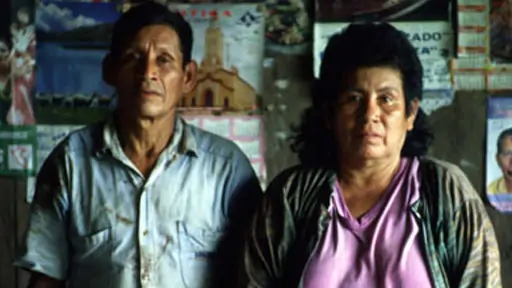Indigenous Calendar November, 2016: A Medicinal Gift to the World

"A handful of qinghao [sweet wormwood] immersed in two liters of water, wring out the juice and drink it all." It sounds like the kind of advice that Neville Longbottom might give to Harry Potter; certainly not the kind of science found in the New England Journal of Medicine. Yet fact is sometimes stranger than fiction. This description of the preparation of sweet wormwood predates J. K. Rowling by more than 1,600 years.
Once in the Ecuadorian Amazon I developed a bad foot blister. I'd applied basic first aid but the pain was only getting worse. My guide showed it to a village shaman who went into the jungle for about a half hour. He returned with some concoction that he applied to my blister. The pain vanished as if by magic. The only time I've personally witnessed the kind of preparation used for sweet wormwood was in Peru when a shaman was preparing ayahuasca. The preparation was more involved than that of sweet wormwood but the end drink was likewise ingested. Ayahuasca is perhaps the best known of shamanic concoctions made from plants. Long misunderstood by outsiders as merely an hallucinogen, the scientific world is beginning to learn about what Amazonian shamans have known for centuries — its medicinal value.
In fact a lot of "western" medicine is derived from rain forest plants — sometimes in consultation with indigenous shamans. Yet relatively little is known about shamanic healing techniques outside of indigenous communities. But that is now changing. A year ago PlantMed, a non-profit organization, announced a major initiative in which western medical practitioners are working alongside Amazonian shamans to "build the world's first centers for the practice, research, and preservation of Amazonian plant medicine" and "unlock the healing power of the Amazon." The first retreat has already taken place, with another coming up soon. They are faced with the initial, daunting task of finding a cure for autoimmune diseases.
The shamans are from Ecuador and, like the shamans in this month's photo, Peru. I came across them when I learned of a toddler in their village who had severely burned her leg with boiling water. But that is another story.
Shamanic medicinal knowledge was acquired over centuries of trial and error. It could be compared to the work of Thomas Edison, who thought not in terms of failure but in terms of successfully learning how not to do something. Tu Youyou is one of those rare scientists who worked like Edison. She is trained primarily in "traditional" Chinese medicine — itself a form of shamanism. She was faced, in the late 1960s, with the daunting task of finding a more effective treatment for malaria. Based on her training she suspected that there should be a plant-based solution. After much trial and error she eventually found the 1,600 year-old description of the preparation of sweet wormwood that led to her breakthrough discovery. Last year it jointly won Tu the Nobel Prize for Medicine.
Aged 84, she traveled to Stockholm to accept the prize. Her acceptance lecture was subtitled: "A Gift from Traditional Chinese Medicine to the World." In it she acknowledged the role that indigenous knowledge does and can continue to play in making the world a better place: "No doubt, traditional Chinese medicine provides a rich resource... Chinese medicine and pharmacology are a great treasure-house." The participants at PlantMed share her belief. In the words of Manari Ushigua: "... we want to leave this knowledge of medicine so that everyone can be cured."
If you enjoyed reading this article, please consider supporting independent, advertising-free journalism by buying us a coffee to help us cover the cost of hosting our web site. Please click on the link or scan the QR code. Thanks!


